The final chapter of Hong Kong's democracy: Legislative Council voter turnout is the lowest in history
Liang Jinghong, Chen Jinrong, Wu Minhui/Taipei Report
English version at: cutt.ly/SFhm8QJ
In order to fight for democracy, Hong Kong's pro-democracy groups have successively proposed universal suffrage for the Chief Executive and an increase in the proportion of direct elections to the Legislative Council. Under pressure from civil society, the Hong Kong government increased the number of directly elected seats in the Legislative Council from 30 to 35 in 2012.
With the free development of social movements in Hong Kong, the voter turnout in Hong Kong elections has increased, and the seats of the pro-democracy group in the Legislative Council and District Council have also increased.
However, since the Hong Kong government took a strong crackdown on the protest movement in 2019, and completed the legislation of the Law of the People's Republic of China on Safeguarding National Security in the Hong Kong Special Administrative Region ("Hong Kong National Security Law") in 2020, the government has continued to suppress democrats, protesters, and more. Candidates seeking a seat in the Legislative Council must be nominated by the election committee, and they must meet the government's standards of loving the country and the party. Hong Kong's democracy is worrying.
On December 19, 2021, Hong Kong will hold its first election after the National Security Law was enacted. Only one self-proclaimed pro-democracy candidate won, with a turnout of only 30%, the lowest turnout in Hong Kong's election history.
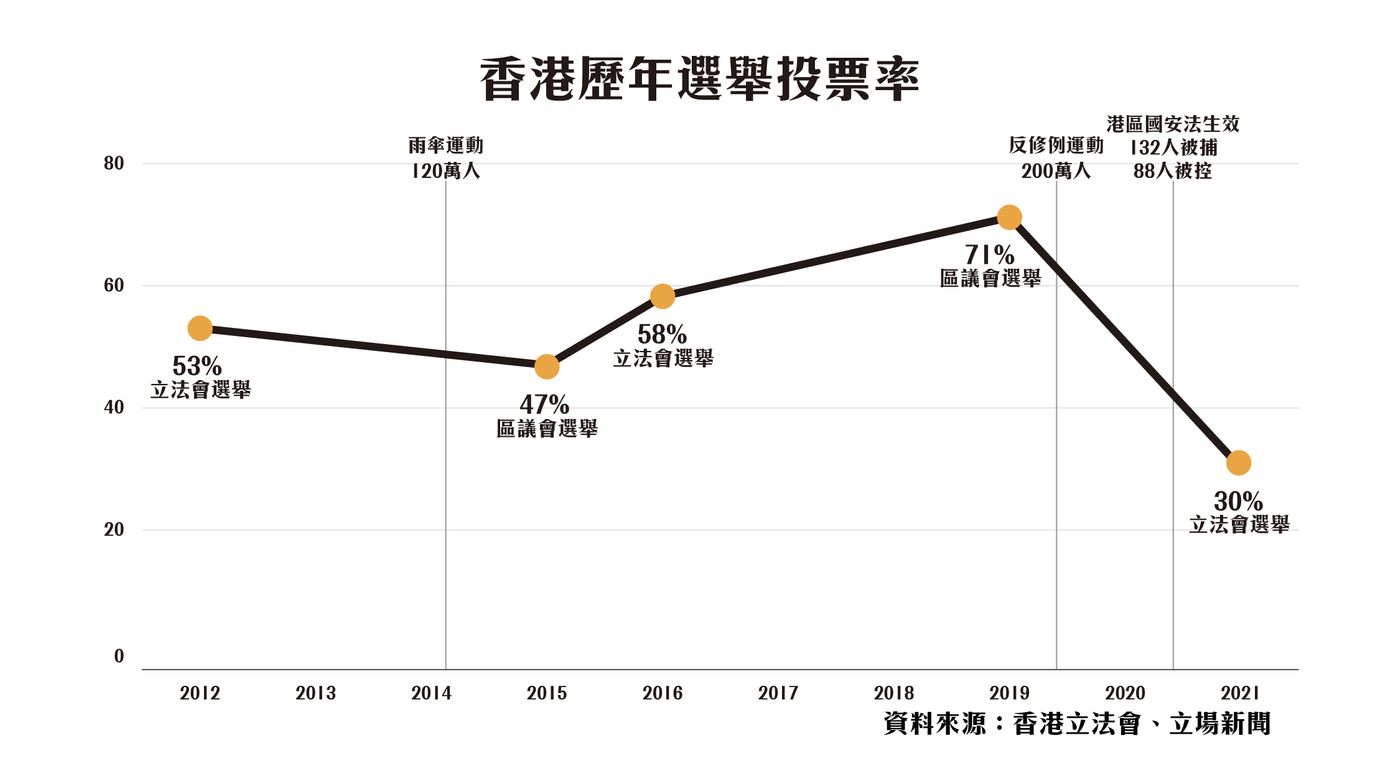
The 2016 Legislative Council election was the first Legislative Council election since the 2014 Umbrella Movement. During the Umbrella Movement, different people fought for universal suffrage for the chief executive, occupied the streets and clashed with the police. According to a survey conducted by the Chinese University of Hong Kong, about 1.2 million people participated in the sports, which is one-sixth of the population of Hong Kong.
Although the Umbrella Movement ended with forced evictions by the police, various organizations have been deeply involved in the community after the movement to promote grassroots democratic awareness. In addition to the traditional democrats, the candidates for the 2016 Legislative Council elections also include localists Liang Tianqi, You Huizhen, Liang Songheng, Chen Haotian, members of passionate citizens, and self-determinationists, Zhu Kaidi and Liu Xiaoli. Even though the government disqualified seven candidates, the turnout was 58%.
As for the district council election in 2019, it is an election in the anti-amendment movement. According to the Civil Human Rights Front, before the election, three marches with 1 million, 2 million and 1.8 million people took place in Hong Kong. Combining information from different media, from mid-June to December 2019, there was an average of more than one demonstration per day in Hong Kong.
On the day of voting in the 2019 district council election, the Hong Kong Polytechnic University was surrounded and arrested by the police, and civil society debated whether to fight for seats in the system. The final voter turnout was 71%, and the pro-democracy group successfully seized the leadership of the district councils in 17 of the 18 districts in Hong Kong. At this time, the Beijing government decided not to sit idly by and watch the democratic development of Hong Kong, and began to take measures to prevent blocking.
With the approval of the Beijing authorities, the Hong Kong government promulgated the "Hong Kong National Security Law" on June 30, 2020. The "Hong Kong National Security Law" can strengthen the power of the Hong Kong government, so the Hong Kong government postponed the 2020 Legislative Council election. It also violated the four-year term of the Legislative Council and extended the term of the sixth term of the Legislative Council.
Elections for the seventh term Legislative Council will be held in December 2021. According to a pre-election survey conducted by the Hong Kong Public Opinion Research Institute, 48% of respondents said they would "majority (vote)" and "definitely (vote)". The final turnout for the election was only 30%. An analysis by Position News found that polling stations with higher voter turnout in the 2019 election have a higher percentage of turnout reductions in the 2021 election.
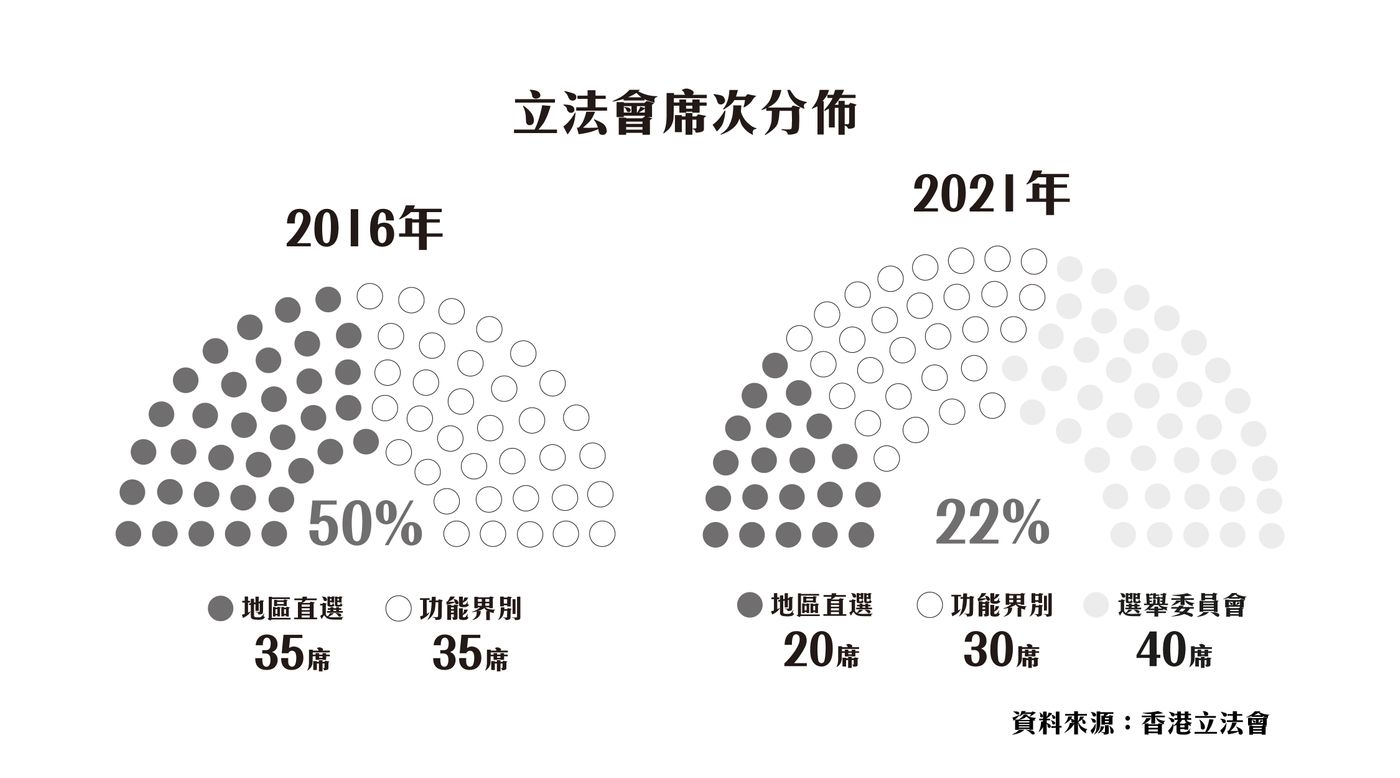
In the 2021 Hong Kong Legislative Council elections, the government has overhauled the election method for the Legislative Council. In addition to stipulating that candidates must pass the "Hong Kong National Security Law" review, the new Election Commission and the Election Commission in the Legislative Council have been added, and the number of directly elected seats has been reduced. It also stipulates that all candidates must be nominated by the Election Committee sector whose members are all pro-establishment.
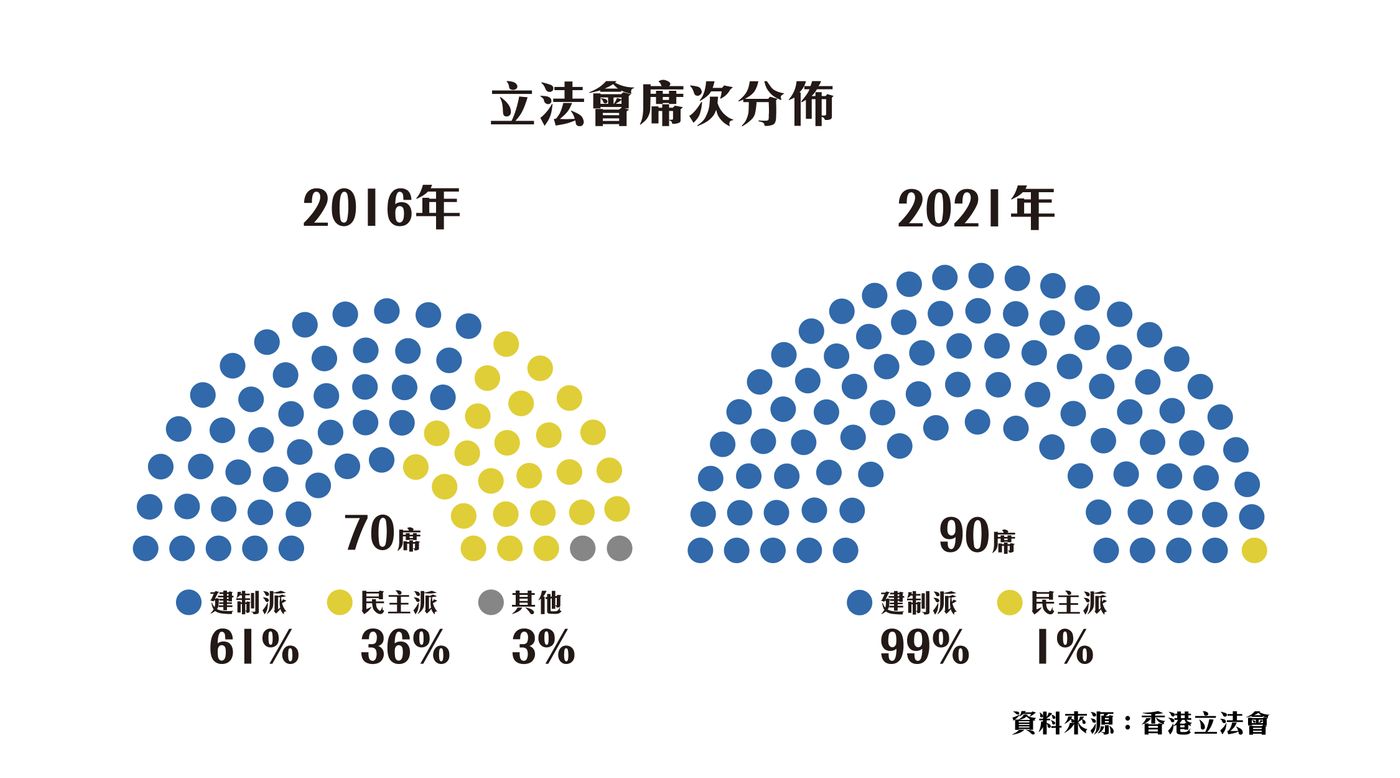
In this election, there are five self-proclaimed democratic candidates, namely Tan Xiangwen, Fang Longfei, Liu Zhuoyu, Cai Mingxi and Huang Weixin; and two self-proclaimed centrist candidates, Huang Lianhao and Di Zhiyuan. However, exiled former Legislative Council members Xu Zhifeng, Luo Guancong, the chairman of the Democratic Party and many other pro-democracy figures do not support pro-democracy candidates. Former Civic Party District Councillors Huang Wenxuan and Liu Jiawen even said that the self-proclaimed democrats who ran for the election were fake democrats.
This batch of self-proclaimed non-establishment candidates were all nominated by the election committees of different pro-China establishment groups. Among them, Di Zhiyuan vetoed the private draft of the Legislative Council for universal suffrage in 1994, supported the implementation of moral and national education in 2014, and supported the establishment candidate Chen Kaixin in 2018. In addition, Cai Mingxi, a member of the Democratic Party, is also opposed to his candidacy by the Democratic Party.
According to the election results of the Election Commission on the 19th of this month, among the self-proclaimed non-establishment candidates, only Di Zhiyuan won the seat of the social welfare functional constituency.
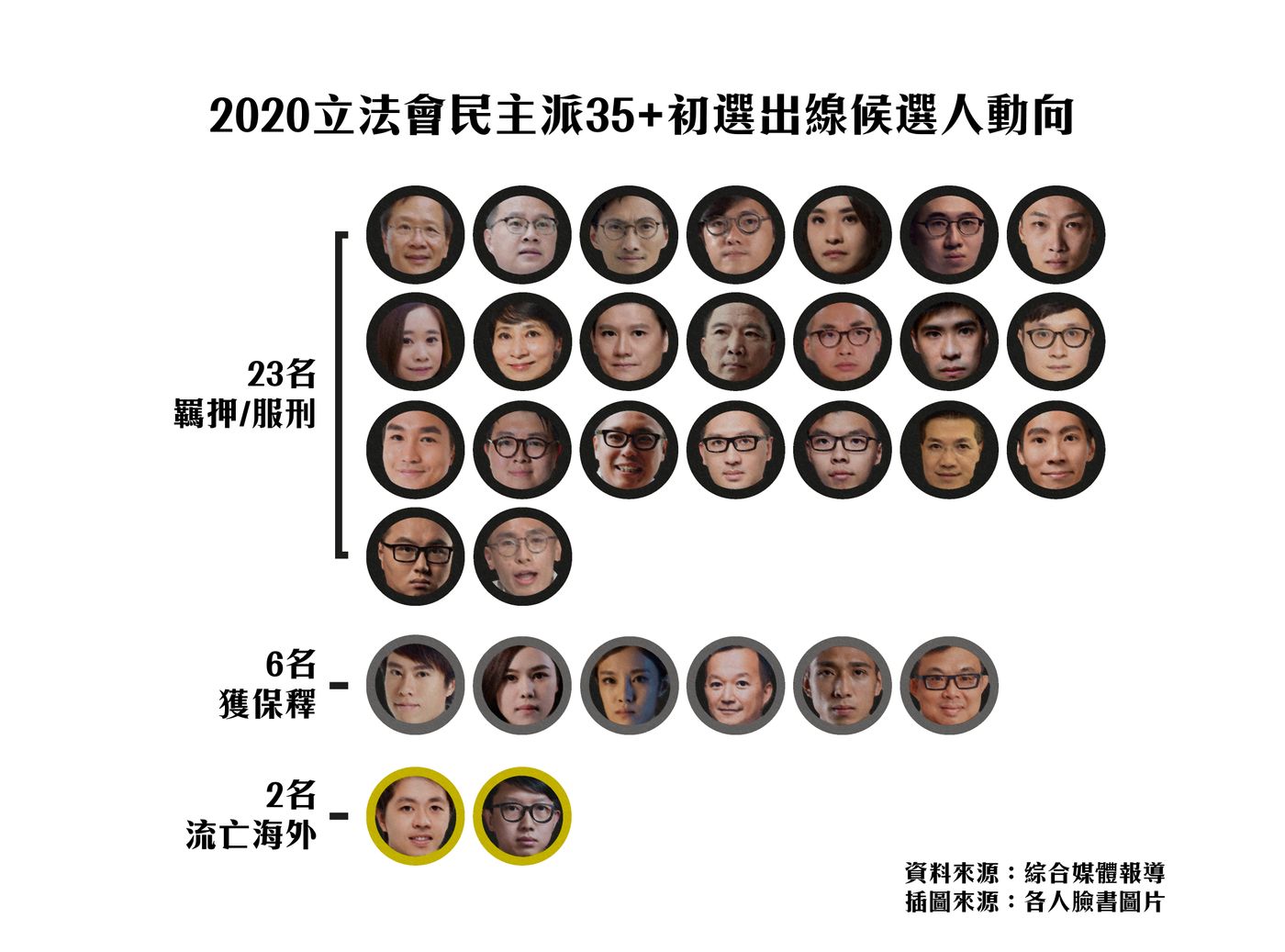
In mid-2020, the pro-democracy camp will hold a primary election for the originally scheduled Legislative Council election. The more radical candidates in the pro-democracy camp hope to gain a majority in the Legislative Council's proportional representation system through primary elections. If the plan is successful, they will be able to boycott the Hong Kong government's budget, and then ask the Hong Kong government to agree to the five demands of the anti-amendment movement.
Of the 31 candidates who won the pro-democracy primary election, 23 are currently detained for more than 300 days on charges of "conspiracy to subvert state power", and their trial procedures have not yet been completed. Among them, He Guilan (6 months), Hu Zhiwei (4.5 months), Liang Yaozhong (9 months), Yin Zhaojian (10 months), Zhu Kaidi (6 months), Huang Zhifeng ( 10 months), Cen Aohui (6 months), Yuan Jiawei (4 months).
In addition, Zhu Kaidi was sentenced to 6 months in prison for the July 1st case in 2020, and Hu Zhiwei was sentenced to 10 months. Liu Yingkuang and Zou Jiacheng were charged with rioting in the July 1st case in 2019. Huang Zhifeng has been sentenced to 13.5 months in prison for the 2019 siege of the police chief. Tan Dezhi was also charged with 14 counts of publishing incitement, and Lin Zhuoting, Guo Jiaqi and Yin Zhaojian were charged with assault, obstruction or harassment.
Zhang Kunyang went into exile in September 2020 and was later wanted under the "Hong Kong National Security Law". Xu Zhifeng went into exile in December 2020, his bank account was frozen, and he was also wanted. While six primary election winners have been released on bail, Huang Ziyue was also detained for 296 days and Zou Jiacheng for 165 days. The bail conditions are strict, including not making any speech or behavior in violation of the "Hong Kong National Security Law", and not being allowed to contact foreign political figures and organizations.
Update: Zou Jiacheng was accused of breaching bail conditions on January 13, 2022, his bail was revoked, and he was detained for the second time.
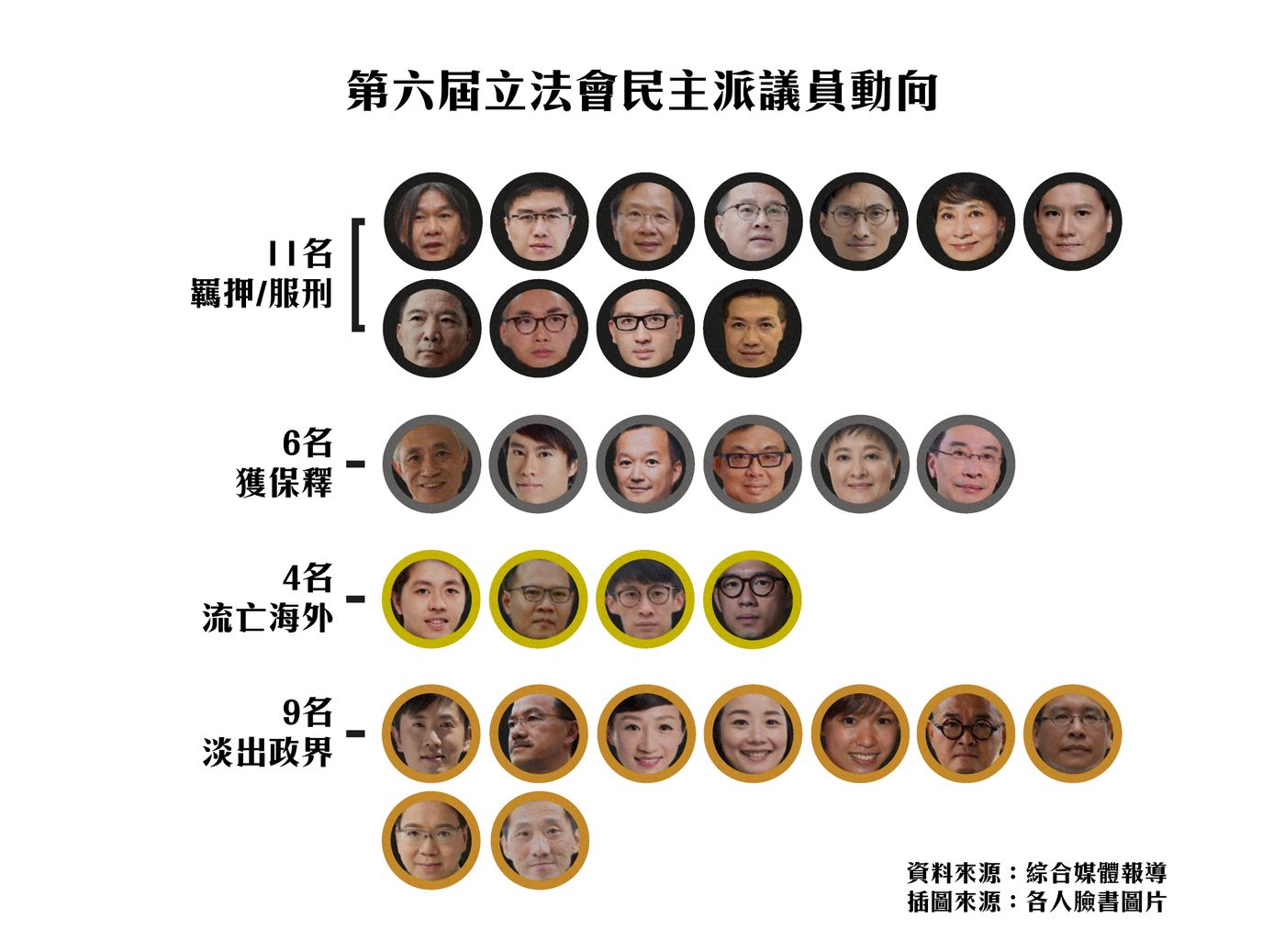
Of the 29 pro-democracy figures who were elected to the sixth term Legislative Council, 11 were charged with various crimes. Liang Guoxiong was sentenced to 6 months in prison for the June 4th case and 8 months for the July 1st case in 2020. Au Nuoxuan was sentenced to nine weeks in a public assault on a police officer and was one of 47 arrested in the National Security Law primary.
There are six currently on bail on charges of "conspiracy to subvert state power". Four of them have been exiled overseas. Except for Xu Zhifeng, who participated in the 2020 primary election, Liang Songheng went into exile in November 2020 and is now wanted by the "Hong Kong National Security Law". Guo Rongkeng was not charged and was still leaving Hong Kong in November 2020.
The remaining nine have faded out of politics. You Huizhen, Liu Xiaoli, and Zheng Songtai faded out of politics after being disqualified as members in 2016. Chen Shuzhuang, Mo Naiguang, Zhang Chaoxiong, and Ye Jianyuan stopped participating in politics in 2020 after refusing to accept an extension of their term. After Shao Jiazhen stepped down from his seat, he devoted himself to the prisoner rights movement, and the organization Stonewall Flower was forced to disband in September 2021.
Like my work? Don't forget to support and clap, let me know that you are with me on the road of creation. Keep this enthusiasm together!
